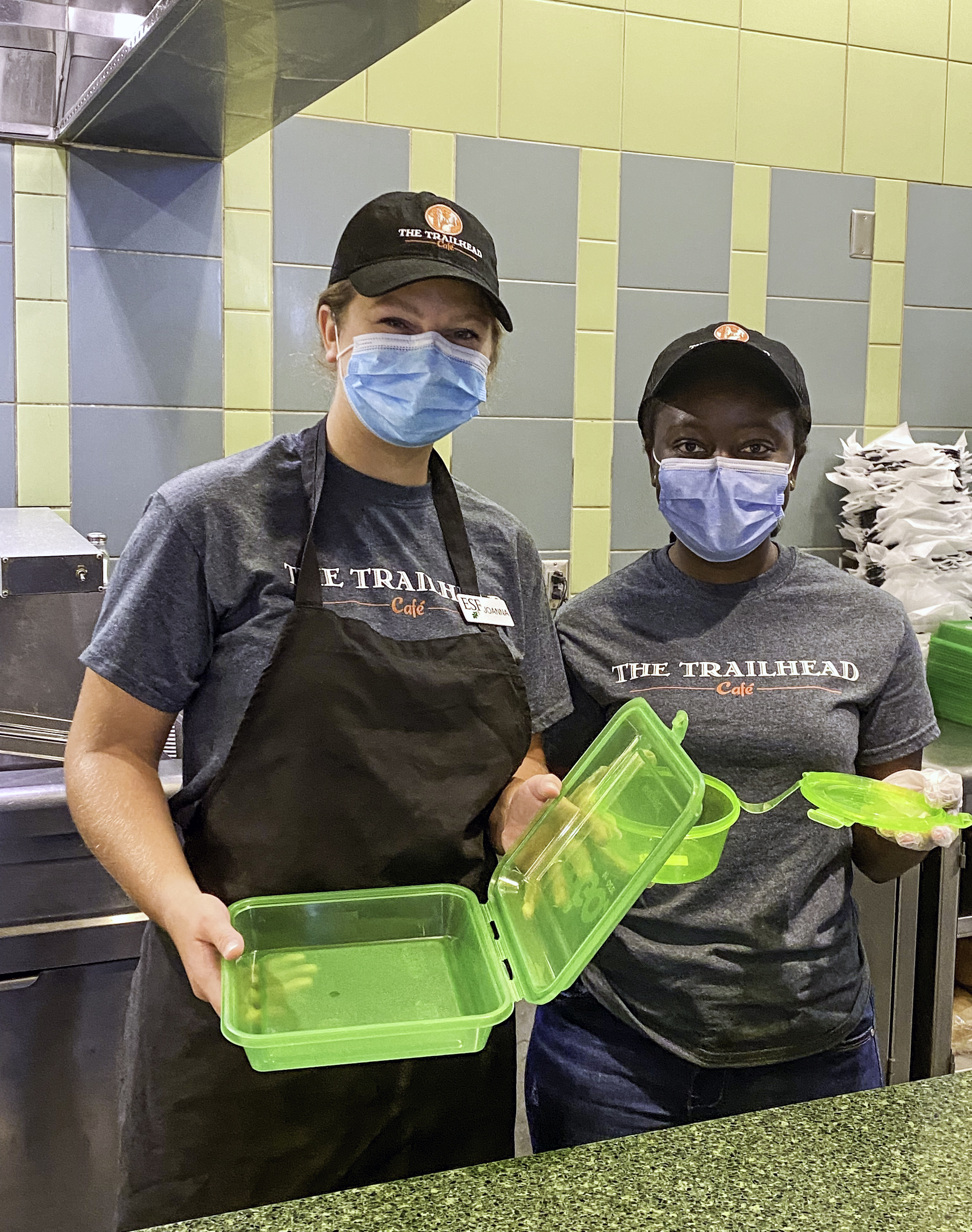Recent Headlines

Trailhead Cafe Steps Up Sustainability Effort
Some of the new offerings at ESF's Trailhead Café this year are not edible.
The popular eatery in the Gateway Center has a new supply of 1,600 reusable to-go containers — 800 clamshells and 800 soup bowls — that are part of the College's Path to Zero Waste program.
"This is something students have wanted for a while," said Sue Fassler, ESF sustainable facilities manager. "It is part of building the culture and ethos on campus of reusable above all else. We can't recycle and compost our way into the future. We need to look at consumption as a systemic whole and reduce what we are using. Period."
Fassler, Trailhead Manager James Zappola, student leaders and staff members in the ESF Office of Business Affairs and Centennial Hall worked through the summer to find the simplest way to work the containers into use.
Centennial Hall residents who purchase food through a Trailhead account received two containers – a clamshell and a soup bowl made from 30 percent recycled material – when they arrived on campus. The rest of the campus community can buy containers at the cafe cash register for $8. Everyone who has a container will have a sticker put on their ESF ID to show they are a program participant.
Here's what to do: When you get hungry, go to the Trailhead Cafe with your to-go container. (If you're really hungry, bring both of them!) Have it filled with your order and enjoy your meal. When you come back, bring the container. If you are placing another order, you'll drop off the old container and get a clean one. Or you can drop off the container and pick up a special carabiner as a placeholder to trade next time for another container.
The program revamps the College's introduction of reusable containers a few years ago. "ESF was trying to get out ahead of reusable container programs but, as with some early adopted programs, the kinks weren't really worked out," Fassler said.
The compostable to-go containers used in recent years might be phased out over time. The cafe staff estimates they have distributed 42,000 compostable clamshells and 18,000 compostable soup bowls each academic year. While it's better than traditional single-use plastic, there is room for improvement.
"Using nothing is better than using something even if it's compostable. The compostable ones are still a disposable, single-use product. We want to be going toward reusable and continual reuse," Fassler said.
Reducing the use of compostable containers will cut down on the amount ESF spends to have compost hauled away; the cost is based on volume, not weight, so it's more economical to compost dense, heavy food scraps than lightweight but bulky containers.
Fassler credited the student club Green Campus Initiative (GCI), the Undergraduate Student Association's SustainabiliTEAM and the Break-Free from Plastics Committee with making the move to reusable happen.
"I have wanted to see this happen on our campus since my freshman year!" said GCI President Sachi Segan. We have been consistently trying to get involved with the sustainability office on campus. James (Zappola) has been extremely helpful and willing to do whatever he can to help me and all other student leaders involved reach this goal. This is a great example of how students can work with others to make a change on campus that will influence incoming students for years to come."